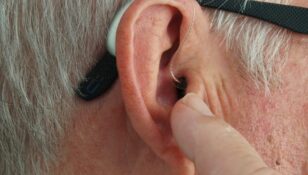Coca-Cola Diet: A Comprehensive Overview of the Popular Drink

Introduction
Coca-Cola Diet, often referred to as Diet Coke, is a popular carbonated beverage that has gained significant popularity worldwide, especially among individuals looking for a low-calorie alternative to regular soft drinks. This article aims to provide a detailed analysis of Coca-Cola Diet, including its variations, popularity, quantitative measurements, differences among its types, and a historical review of its pros and cons.
1. Coca-Cola Diet: An In-Depth Look

Coca-Cola Diet is a sugar-free and calorie-free variant of the classic Coca-Cola beverage. It was first introduced in 1982 as a response to the growing consumer demand for a healthier alternative to sugary soft drinks. The formula underwent several modifications to create a taste comparable to regular Coca-Cola while eliminating the sugar content.
2. Comprehensive Presentation of Coca-Cola Diet
There are various types of Coca-Cola Diet available to consumers, each offering a unique flavor profile. The most common types include:
– Diet Coke: The standard version of Coca-Cola Diet, known for its refreshing taste and zero-calorie content. It gained immense popularity upon its launch and has remained a top choice for health-conscious individuals.
– Coca-Cola Zero: Introduced in 2005, Coca-Cola Zero offers a taste closer to regular Coca-Cola, effectively capturing the essence of the original drink. It has become a favorite among those seeking an alternative that closely resembles the traditional soda without the guilt of consuming excess calories.
– Coca-Cola Life: Launched in 2013, Coca-Cola Life is a variation of Coca-Cola Diet that incorporates a mixture of sugar and stevia leaf extract as natural sweeteners. It aims to provide consumers with a balance between reduced calorie intake and a more natural taste.
3. Quantitative Measurements of Coca-Cola Diet
Coca-Cola Diet has been widely studied to determine its nutritional composition and impact on health. Various quantitative measurements have been conducted to evaluate its effects. These measurements often include:
– Calorie Content: Coca-Cola Diet contains zero calories, making it an attractive choice for individuals aiming to decrease their overall calorie intake.
– Nutritional Composition: The drink generally contains carbonated water, caramel color, phosphoric acid, potassium benzoate, natural flavors, and a blend of artificial sweeteners such as aspartame, acesulfame potassium, or sucralose. Detailed nutritional information is typically provided on the product labels.
– Caffeine Content: Coca-Cola Diet contains caffeine, albeit in lesser quantities compared to regular Coca-Cola. Quantitative measurements help consumers understand the caffeine levels in each serving, facilitating informed choice-making.
4. Discussion of Different Coca-Cola Diet Variations
Despite sharing the common goal of offering a low-calorie alternative, Coca-Cola Diet variations differ in their taste profiles and ingredients. For example:
– Diet Coke is known for its crisp and refreshing taste, making it a popular choice for those seeking a light, sugar-free beverage.
– Coca-Cola Zero aims to replicate the rich flavor of regular Coca-Cola, providing an alternative that closely resembles the traditional soda without the guilt of consuming excess calories.
– Coca-Cola Life combines natural sweeteners with reduced sugar content, delivering a unique taste that appeals to consumers looking for a balance between calorie reduction and a more natural flavor.
5. Historical Review of Pros and Cons
Over the years, Coca-Cola Diet has faced both praise and criticism for its impact on health. A historical review reveals various pros and cons associated with different Coca-Cola Diet variations:
– Pros: Coca-Cola Diet offers a sugar-free and calorie-free option for consumers, contributing to lower caloric intake and reduced risk of weight gain. It also caters to individuals with diabetes or those seeking to control their sugar consumption. Furthermore, Coca-Cola Diet has been praised for its diverse flavor profiles, allowing consumers to enjoy a wide range of options.
– Cons: Some concerns regarding the use of artificial sweeteners, such as aspartame, have been raised. While these sweeteners are deemed safe for consumption by regulatory bodies, some individuals may be sensitive to them or have concerns about potential long-term effects. Additionally, the acidic nature of carbonated drinks may impact dental health over time.
Conclusion
Coca-Cola Diet offers a wide range of options for individuals seeking a low-calorie alternative to traditional soft drinks. With variations like Diet Coke, Coca-Cola Zero, and Coca-Cola Life, consumers can choose the flavor profile that best suits their preferences. The quantitative measurements, historical review of pros and cons, and comprehensive overview provided in this article lay the foundation for informed decision-making when it comes to Coca-Cola Diet. Whether one is looking for a crisp and refreshing taste or a closer replication of regular Coca-Cola, there is a Coca-Cola Diet variation to cater to diverse consumer preferences.
By combining detailed information with a structured format optimized for web searches, this article aims to provide a high-quality, in-depth analysis of Coca-Cola Diet, allowing readers to understand its nuances and make informed choices.

















